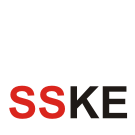From SSKE
| Line 41: | Line 41: | ||
Visit the [http://sigarra.up.pt/feup_uk/disciplinas_geral.FormView?P_CAD_CODIGO=MIET0011&P_ANO_LECTIVO=2011/2012&P_PERIODO=2S Business Implementation Project Course Website]. | Visit the [http://sigarra.up.pt/feup_uk/disciplinas_geral.FormView?P_CAD_CODIGO=MIET0011&P_ANO_LECTIVO=2011/2012&P_PERIODO=2S Business Implementation Project Course Website]. | ||
| − | [[SSKE Knowledge/isTaughtBy::Oliveira, José Miguel| ]][[SSKE Knowledge/isTaughtBy::Aroso, Manuel | + | [[SSKE Knowledge/isTaughtBy::Oliveira, José Miguel| ]][[SSKE Knowledge/isTaughtBy::Aroso, Manuel | ]] |
[[Category:SSKE Knowledge/University Course|SSKE_Knowledge/University_Course]] | [[Category:SSKE Knowledge/University Course|SSKE_Knowledge/University_Course]] | ||
Latest revision as of 22:48, 18 May 2012
FEUP IET Innovation and Technological Entrepreneurship
Business Implementation Project Course
Objectives, Skills and Learning Outcomes
This course unit aims to support the enhancement of a business plan in order to prepare the start of a new technology- based company by using or not seed capital or risk capital. This course unit also aims to orient teams in the final enhancement of a business plan, taking into account its preparation in order o present it to the investors.
After the completion of this course unit, students should be capable of:
- performing a development planning of a new technology-based product/service;
- selecting a management team for their business;
- identifying the most adequate way of financing their investment project.
Program
The methodology of this course unit is based on functional, strategic and market opportunity analysis, to be developed in groups from two to five students.
During the semester is carried out the validation of key areas which have to be covered in the implementation of a business. It will take place in thematic sessions where the reflection in group is valorised. Some guests will also take part of those sessions.
As a result, the first integral version of a business plan will emerge.
Sessions will be organised in the following way:
- Presentation of the course unit;
- Presentation of the course unit; Assessment rules; Having a starting plan: how to organise and monitor it.
- Mobilising the necessary human resources;
- How and when to start: HR: How to structure a team;
- Commercial start & internationalisation;
- Commercial start & communication of company’s existence. Internationalisation as a second challenge to existence.
- Sources of finance
- How to guarantee minimum financing when starting a business. Alternative sources.
- Everyday taxation
- Taxation: VAT, Social Security, Corporate Income Tax (IRC), Internal Revenue Service (IRS).
- Treasurer’s department and legal matters:
- Legal mattes: Necessary steps to start a business; Treasurer’s department; Legal matters management and implications in management decisions.
- Final presentation:
- Presentation of the implementation projects
The final project of implementation has to be done in groups.
Groups are responsible for only one implementation project and cannot be constituted by less than two students or more than five.
The composition of the groups and the choice of technology in which the business plan will be based is students’ choice.
Up until the day before of the second session, groups have to inform the professors about their final formation and technology selected, at risk of being excluded of the continuous assessment component.



